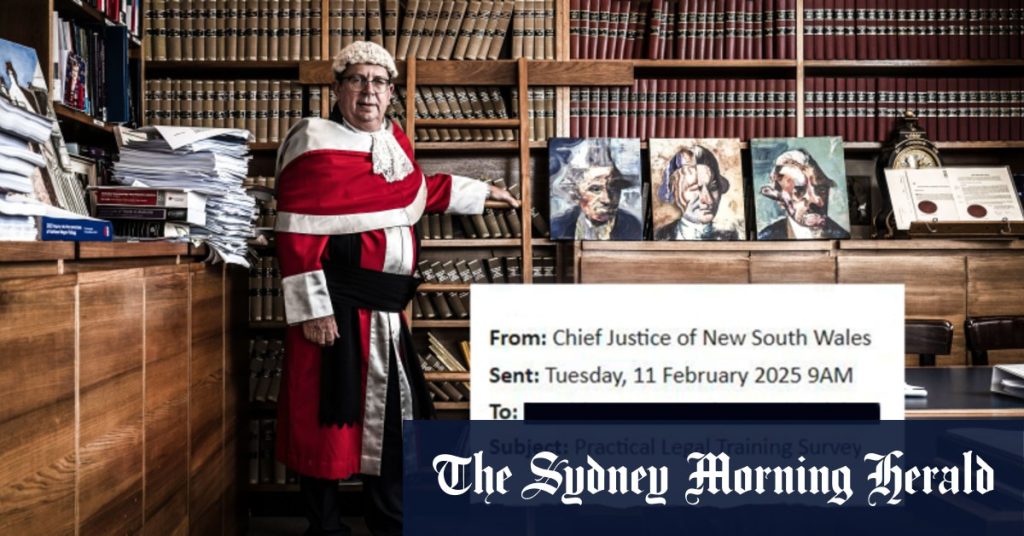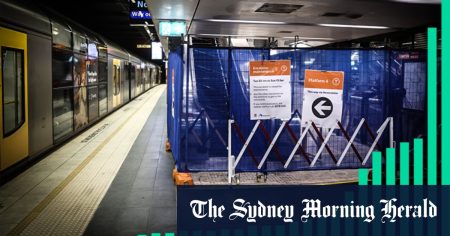Financial Transparency and the College of Law’s Surplus
The College of Law, a not-for-profit institution, has come under scrutiny following the revelation of its significant financial surplus over the past decade. According to its financial statements, the College has generated an average annual surplus of nearly $16 million, accumulating retained earnings of approximately $180 million. This substantial financial cushion has raised eyebrows, particularly among stakeholders who are concerned about the affordability of legal education and training. Chief Justice Andrew Bell expressed his surprise at these figures, highlighting the disparity between the institution’s financial health and the cost of Practical Legal Training (PLT) for students. While the College has taken steps to reduce course fees—to $9,200 this year—critics argue that more needs to be done to address the high cost of PLT, which has seen significant increases over the past decade.
Concerns Over the Cost of Practical Legal Training
Chief Justice Bell has been a vocal advocate for making legal education more affordable, particularly when it comes to PLT. In a letter, he emphasized his ongoing concerns about the high fees charged by various PLT providers, noting that these costs have grown substantially over the past 10 years. While the College of Law has reduced its fees, Bell believes that the overall cost of PLT remains a barrier for many aspiring lawyers. To address these issues, an independent survey was commissioned by the Legal Profession Admission Board (LPAB), with the aim of gathering data to inform potential reforms to the delivery and cost of PLT. The survey also seeks to understand the profession’s views on how practical skills are taught, examined, and assessed.
The LPAB Survey and Its Objectives
The survey, conducted by the independent research agency Urbis, is designed to identify areas for improvement in the provision of PLT. By engaging with stakeholders, including current and former students, legal professionals, and educators, the LPAB hopes to gain a deeper understanding of the challenges and opportunities within the current system. A key focus of the survey is the cost of PLT, as well as the modes of delivery and assessment methods. Court of Appeal Justice Tony Payne, who chairs the LPAB, shares Bell’s concerns and believes that the survey will provide valuable insights to guide future reforms. The findings of the survey will be instrumental in shaping a more accessible and effective PLT program.
Governance and Leadership at the College of Law
While the College of Law has faced questions about its financial practices, it has emphasized that its operations are in full compliance with regulatory requirements. For instance, the College’s financial statements are prepared in accordance with ASIC regulations, and it has declined to provide additional details about the compensation of key management personnel, which totaled $2.01 million in 2024. The institution has also highlighted its commitment to continuously improving its PLT program through regular feedback from students and staff. In response to the LPAB’s survey, the College expressed openness to collaborating with stakeholders to ensure the best outcomes for the legal profession.
Stakeholder Responses and Reactions
The College of Law has defended its financial practices, stating that it operates transparently and in accordance with all relevant regulations. It has also emphasized its dedication to gathering feedback and using it to refine its programs. Meanwhile, the Law Society of NSW has voiced its support for affordable and effective PLT, recognizing the importance of equipping graduate lawyers with the skills and knowledge they need to thrive in the profession. Law Society President Jennifer Ball has expressed her eagerness to review the results of the LPAB’s survey and use them to inform further improvements. Her 2025 term has prioritized high-quality career support and guidance for early-career lawyers, with a focus on fostering critical thinking and legal knowledge.
Moving Forward: Collaboration and Reform
The retirement of the College of Law’s CEO, David Carter, was announced in December, with the institution emphasizing that this change was long planned and unrelated to the current discussions about PLT costs. As the legal profession continues to evolve, the focus remains on creating a more accessible and affordable pathway for future lawyers. The LPAB’s survey represents a significant step toward achieving this goal, and the willingness of stakeholders to collaborate bodes well for meaningful reform. By prioritizing transparency, affordability, and quality, the College of Law, the LPAB, and the broader legal community can work together to ensure that PLT remains both effective and accessible for generations to come.












